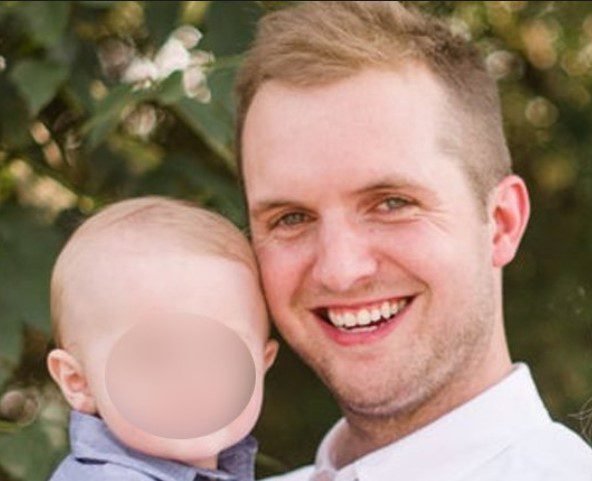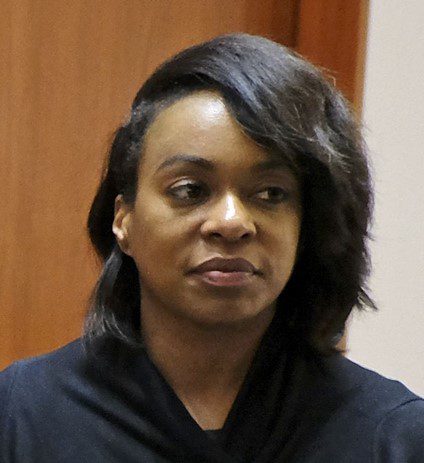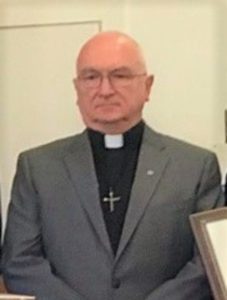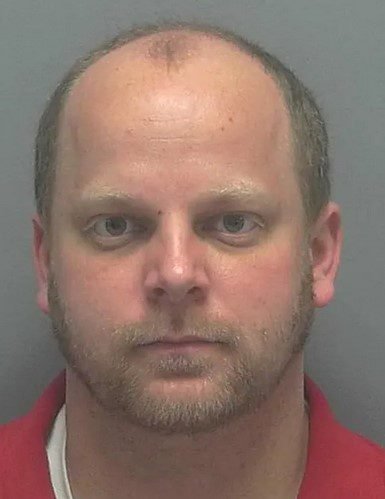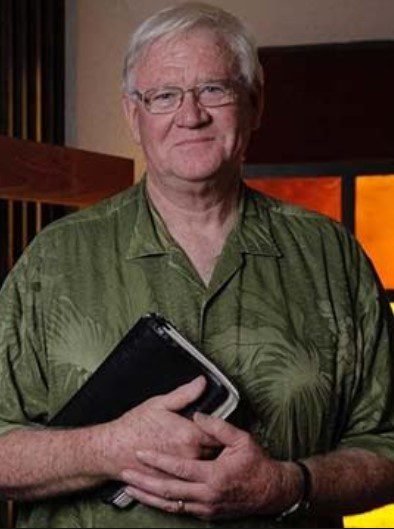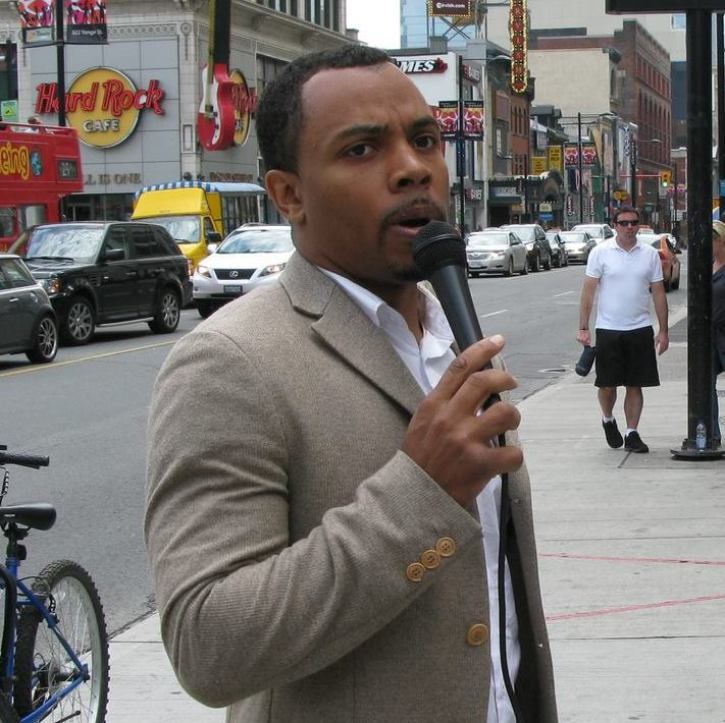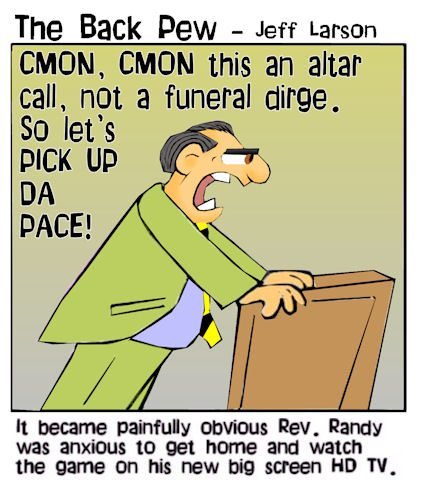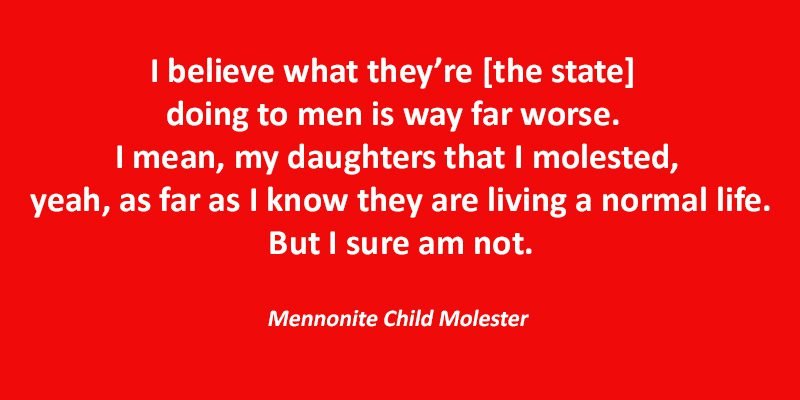
The Toledo Blade recently published a story about how some Amish and Mennonite communities expect victims of child abuse, domestic violence, and other crimes to forgive their attackers and forget the crimes ever happened. Practicing absolute forgiveness, these faith communities expect congregants to forgive regardless of what harm is caused and whether perpetrators are truly sorry for their crimes. The Toledo Blade story focuses on a woman who was excommunicated from her conservative Mennonite church because she refused to forgive her husband — a man who repeatedly sexually molested their daughters over the years. Astoundingly, the Sunday after this woman was excommunicated, her church, with arms opened wide, welcomed her husband back into the church.
After local law enforcement became aware of the husband’s criminal sexual behavior, he confessed his “sins” and was sentenced to five years of probation and 15 years on Pennsylvania’s sex offender registry. You would think that the husband would be penitent and understand why his wife no longer wanted her children anywhere near him. Unfortunately, as is often the case with sex crimes that have a religious component, the husband didn’t truly see the depth of harm he caused:
They held a seminar, and they talked about how that is sin, and I did want to be free before God and confess it and get freedom, Shirk, now 50, said in an April interview. I didn’t want something hid that should have been confessed and taken care of.
I did confession in church and made the confession in church and everybody stood and said they forgave me. I thought it was all good, but I found out that doesn’t make everybody happy.
[He laughed.]
After that, I found out a lot of people carry a lot of hatred for that sin and it’s hard for people to forgive.
….
This got way out of hand. For a little bit of touching that I did wrong. I know that it can be a big emotional thing for the girl, and it can affect their life ever after and stuff like that, and I don’t want to belittle what I did.
“There is no forgiveness for one thing. The state has no forgiveness, and therefore the church has no forgiveness, because the state is on their case that they’ll put the preacher in jail if they don’t report it.
I believe what they’re [the state] doing to men is way far worse. I mean, my daughters that I molested, yeah, as far as I know they are living a normal life. But I sure am not.
The husband continues to try to reconnect with his wife, saying:
I wouldn’t expect a woman to live with a man who is drunk and beating on her. I wouldn’t expect that. But when the church has gotten together and said this man [a convicted child molester] needs forgiveness, it would have been in her place to do that.
As you can see from the husband’s comments, he lacks remorse and contrition, and when it comes right down to it, he doesn’t think what he did is so bad. Hey, at least he didn’t beat his wife and the daughters he molested are living “normal” lives, right? The husband even went so far as to question his wife relationship with God, saying, “I just don’t understand how that [not being reconciled] is going to work out on Judgment Day.” The wife joined another conservative Mennonite church, and while she has been encouraged by them to reconcile with her husband, they have not pressed the matter with her. I am sure some readers are thinking, “WHAT THE FUCK! Why doesn’t she divorce her child-molester husband?” Well, the answer is quite simple: conservative Mennonite congregations do not permit divorce, and doing so would be immediate grounds for excommunication.
Generally, forgiving others is a good idea. Forgiveness fosters peace and helps reconcile people who are at odds with one another. However, practicing absolute forgiveness can and does cause harm, and as this story shows, it allows people to escape responsibility for their behavior. Our goal in life should be to live in ways that don’t require forgiveness, and when we do cause harm to someone, to quickly make amends or restitution. It is up to the person harmed, then, to grant forgiveness. Absolute forgiveness wrongly requires absolution regardless of whether the offender makes things right.
I saw this kind of forgiveness expectation practiced numerous times over the fifty years I spent in the Christian church. Private “sins” were expiated simply by the penitent confessing their bad behavior to God. The Bible says in 1 John 1:9: If we [Christians] confess our sins, he [God] is faithful and just to forgive us our sins, and to cleanse us from all unrighteousness. God promises to cleanse Christians from any and all sin if they will but ask him to do so. And if Christian’s ask, God wipes their sin slates clean, giving them the equivalent of a divine do-over. A sweet deal if you can get it, right?
When Christians commit public “sins” — behaviors that cause public shame to Jesus and his church — they are often brought before congregational leaders or fellow church members and expected to publicly confess their sins. Once the sinner has confessed his sins, he is absolved, and as in the case of private sins, his sin slate of wiped clean.
Whether a person is forgiven by Jesus of private or public sins, it matters not. Once forgiven — and exactly how is that determined? — congregants, including family, spouse, and children, are expected to absolutely forgive the person. Failing to do so is seen as bitterness or pride. I know of several instances where husbands abused their wives, confessed their “sins” before the church, and were granted forgiveness. Their wives were expected to forgive them and move on with life, living with men who just weeks before physically and psychologically abused them. In at least two instances that I know of, abusive husbands were welcomed back into their churches, while their wives were excommunicated for having bitter, judgmental spirits.
Even heinous crimes such as sexual abuse and rape are far too often covered over with expectations of absolute forgiveness. A recent story in the Houston Chronicle revealed that there are dozens of Southern Baptist churches who welcomed sex offenders back into their membership after their convictions. These churches KNEW these men were sex offenders, yet with arms open wide, they said, We forgive you, brother. Welcome to our church. I saw this same behavior on several occasions with Independent Fundamentalist Baptist (IFB) churches. One man, a church bus worker, was caught sexually abusing a teen boy in the church’s basement. He was forgiven by the church and escaped jail time for his crime. Twenty years later, the man was given access to children again, and as sure as the sun comes up in the morning, he sexually abused another child. This time, the man did time for his crime. While the church forgave him, they would not permit him to continue attending their services. With the blessing of his pastor and church leaders, the man joined a nearby IFB church, and to this day can be found there “faithfully” serving Jesus. Astoundingly, his wife — taught by her pastors that there are no grounds for divorce — is still with him.
Whether to forgive should be up to the person harmed. While forgiving others is generally a good idea, churches that demand forgiveness in all circumstances cause harm to people who cannot or are not ready to do so. The act of forgiveness rests with the person harmed. In the case of spousal abuse, child abuse, and sex crimes, churches which demand that victims absolutely forgive their attackers often revictimize and inflict further pain on women and children (and in some instances, men). Victims must be given the space to process what happened to them on their own terms. And if they, for some reason, cannot or will not absolve abusers of their crimes, churches and pastors should accept their decision.
I grew up in a religious culture where absolute forgiveness was expected, regardless of the seriousness of the bad behavior or crime. One of the freeing moments of my life was realizing that I didn’t have to forgive my grandparents (my mother’s father and stepmother) for what they did to me personally, and to my mother and our family in general. My grandparents were go-to-church-three-times-a-week Fundamentalist Christians. Grandpa was a violent drunk before he got saved. After asking Jesus to forgive him of his sins, Grandpa was transformed into a “wonderful” Christian who still was quite violent. And Grandma was not without her own demons. (Please see Dear Ann) Publicly, they were viewed by others as super-duper Christians who loved Jesus with all their heart, soul, and mind. And maybe they did, but underneath their religious veneer lived people prone to psychological and physical abuse.

Years before my mother’s tragic suicide (Please see Barbara), she tried to confront her dad over him sexually abusing her as a child. He told my mom that his past had been forgiven by Jesus and his sins were washed away by the blood of Jesus. He intimated to Mom that if Jesus had forgiven him, so should she. Needless to say, Mom was in no mood to forgive her child molester father. Nor did she plan to forgive his wife, a woman who caused untold heartache and pain. Years later, I reached a place where I had enough of my grandparents’ passive-aggressive behavior. I made it known that I was no longer interested in having a relationship with them. And with that, my grandparents were excised from my life and that of my family. Or so I thought anyway.
In 2003, I moved to Clare, Michigan and became the pastor of a small, struggling Southern Baptist church. One Sunday, as I was preaching, I glanced up and looked out the windows at the back of the building. I was shocked to see my grandmother sitting in her car with her new husband. (Grandpa had miserably died several years before of colon cancer.) I had a Christian version of a WTF moment, and sure enough, after the service my grandmother came up to me as if nothing had ever happened and told me she was living near me with her new hubby and asked if my family and I wanted to have dinner with them sometime. At that moment, I was dying inside, wanting to verbally reduce her to the pile of shit she was. Unfortunately, congregants were standing nearby, so I said, “sure.” Always play the part, Bruce. Always play the part. Several church members told me that they used to attend church with my grandmother. She is a wonderful Christian woman, they said. I responded, there are two sides to every story. Later, I would feel guilty over not forgiving her, so I spent time in prayer asking God to forgive me for being angry and bitter towards my grandmother.
Cleansed of my “sin,” I decided to try to forge a new relationship with my grandmother and her new husband. Polly dreaded doing so, remembering how awful my grandparents were towards her and our children. I played the “what would Jesus do” card, and off to my grandmother’s home we went — which was, ironically, a mile or so away from our home. During our dinner discussion, my grandmother decided to share a family secret that had laid buried for over fifty years: that my father was not my biological father. Granted, I had begun to question my paternity, and have since concluded that my “real” father was likely my mother’s cousin, but it was not my grandmother’s place to share this secret over dinner and in the presence of my wife and children. Why she decided to do this, I’ll never know. This was the last time I ever talked to her. Several months later, we moved back to Ohio, and outside of my grandmother trying to contact me on Facebook, I have had no contact with her. I sent her my Dear Ann article. She never responded. Of course not, it is all under the blood, buried in the deepest seas, never to be remembered again.
As an atheist and a humanist, I have learned that it is okay to not forgive some people; that some people, such as my grandparents, don’t deserve forgiveness; that them going to their graves unforgiven is just punishment for their crimes and ill-behavior. When my grandfather died, I felt nothing and shed not a tear. I was faulted for not attending his funeral, but I didn’t care. I knew it would be an act of Fundamentalist masturbation over his rotting corpse. I would hear wonderful tales about the man, the myth, the legend; the soulwinner who daily sought to evangelize the lost; the man who loved Jesus more than the world. We would not be told, as Paul Harvey used to say, “the rest of the story.”
I am fine with people thinking I am unforgiving; that I should make peace with my grandparents. My grandparents are bad people. No matter how many times they attended church, sang hymns, won souls, and gave money to the church, they were still, at least to family, nasty, judgmental, mean, and violent; guilty of behavior that would land them in jail if they did these things today. Life is too short to spend it around such people. If they need forgiveness, let them ask God for it. As their grandson and the son of the dear woman they physically and psychologically brutalized, I have no intention of granting them pardon. My grandfather is dead. Good riddance. Soon, my grandmother will meet her end too. I shall not weep, except, perhaps, for those harmed by their behavior. Too bad there’s not a Hell. If there were, I know two people who deserve first-class accommodations.
Were you taught that you must, in all circumstances, absolutely forgive? Please share your experiences in the comment section.
About Bruce Gerencser
Bruce Gerencser, 62, lives in rural Northwest Ohio with his wife of 41 years. He and his wife have six grown children and twelve grandchildren. Bruce pastored Evangelical churches for twenty-five years in Ohio, Texas, and Michigan. Bruce left the ministry in 2005, and in 2008 he left Christianity. Bruce is now a humanist and an atheist. For more information about Bruce, please read the About page.
Thank you for reading this post. Please share your thoughts in the comment section. If you are a first-time commenter, please read the commenting policy before wowing readers with your words. All first-time comments are moderated. If you would like to contact Bruce directly, please use the contact form to do so.
Donations are always appreciated. Donations on a monthly basis can be made through Patreon. One-time donations can be made through PayPal.
Share This Post On Social Media:
